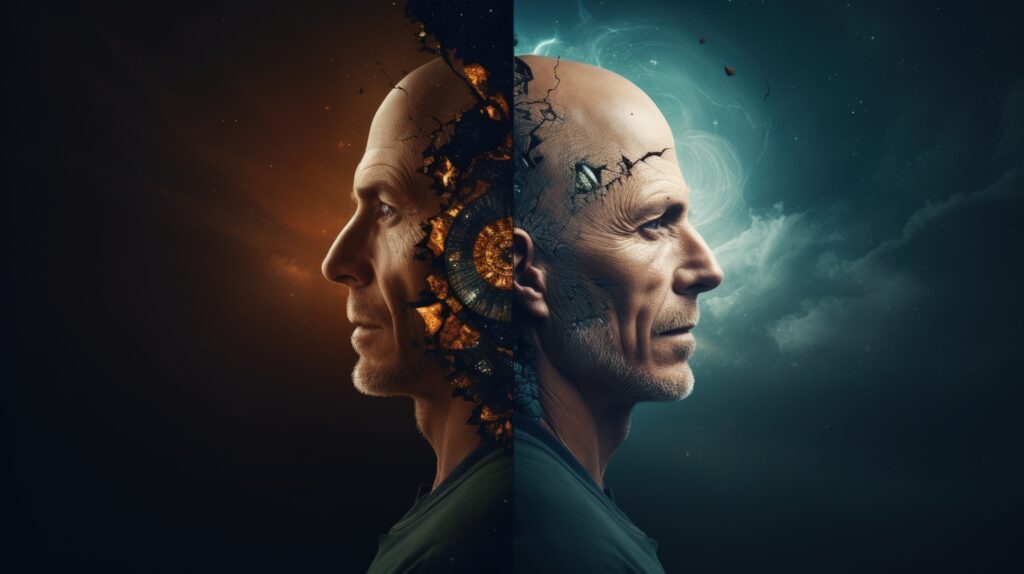There was a time when survival demanded wit. Fire had to be discovered. Food hunted. Language invented. Our brains evolved not because life was easy, but precisely because it wasn’t.
Fast forward to now: artificial intelligence writes our emails, solves our problems, and even finishes our thoughts before we have them. We’re surrounded by frictionless solutions. Everything is easier. More accessible. More convenient.
But here’s the paradox: the smarter our tools get, the dumber we risk becoming.
The Cognitive Cost of Convenience
The modern human is outsourcing their brain.
Can’t remember something? Google it. Don’t want to write? Let ChatGPT do it. Need a summary of a book? There’s an app for that too.
It’s not just about saving time—it’s about not having to think. But thinking is what made us human.
As neuroscientist Daniel Levitin explains, “the brain is like a muscle—if you don’t challenge it, it weakens.” And yet we’re now designing our lives to avoid exactly that: challenge.
Instead of engaging with complexity, we skim. Instead of wrestling with ideas, we delegate them. The result? A generation losing touch with deep cognition—and with it, creativity, resilience, and independent thought.
The Rise of the Effortless Mind
We’re living in the age of the dopamine shortcut.

Every ping, notification, chatbot reply, or instant answer delivers a hit of pleasure. In Dopamine Nation, psychiatrist Anna Lembke reveals how our brains are now wired for immediate reward, creating a culture that avoids anything slow or effortful.
AI only supercharges this pattern. Why read an article when an AI can summarize it in a sentence? Why struggle through your own idea when a bot will generate ten?
This isn’t productivity. It’s passive consumption. And it’s rewiring us in dangerous ways.
As MIT professor Sherry Turkle observes, “technology doesn’t just change what we do—it changes who we are.” In a world where machines complete your sentence before you do, who do you become?
Always in a Rush, But Toward What?
We’re rushing. All the time. Faster browsing. Faster thinking. Faster everything.
But ask yourself: rushing to where?
We’ve confused speed with progress. But human intelligence wasn’t built for speed—it was built for struggle. For problem-solving. For exploration.
In her TED Talk, Turkle describes how our hyper-connected lives have left us “connected, but alone.” The same can be said about our relationship with AI: we’re surrounded by artificial intelligence, but increasingly disconnected from our natural one.
The Illusion of Mastery
AI tools make us feel capable. They offer perfect grammar, clean code, instant insight. But they also offer the illusion of mastery—without the effort to earn it.
There’s a difference between producing information and understanding it.
Each time we use AI to bypass cognitive effort, we teach our brains that thinking is optional. Over time, it forgets how.
As author Nicholas Carr wrote in The Shallows, “What the Net seems to be doing is chipping away my capacity for concentration and contemplation.” AI is the next layer of that erosion.
So… What Do We Do Now?
Artificial intelligence isn’t the enemy. How we use it is.
We must treat it like a microscope or a telescope—amplifiers of human thought, not replacements. When AI becomes a substitute for curiosity, struggle, and deep thought, we lose what made us intelligent in the first place.
Here’s how we reclaim it:
- Challenge your mind daily. Don’t just consume AI output—engage with it. Refine it. Question it.
- Read deeply. Train your attention span. Let your mind stretch again.
- Reflect offline. Walk without headphones. Write by hand. Sit with questions.
- Let things be hard. Growth is in the effort. In the delay. In the discomfort.
Because once everything becomes easy, nothing changes us anymore.
And as Marshall McLuhan warned long before this digital age, “Every extension of man is also an amputation.” When we extend our minds through machines, we risk amputating the very faculties that made us human.
In a world of artificial intelligence, the most radical act may be to think deeply, slowly, and for yourself. Already read other articles here? Give it a try! uvibethrive

